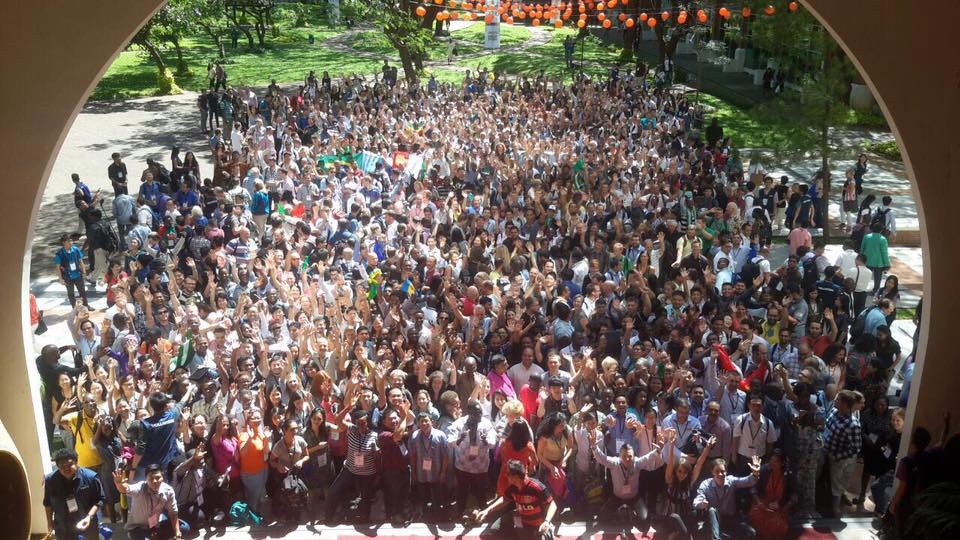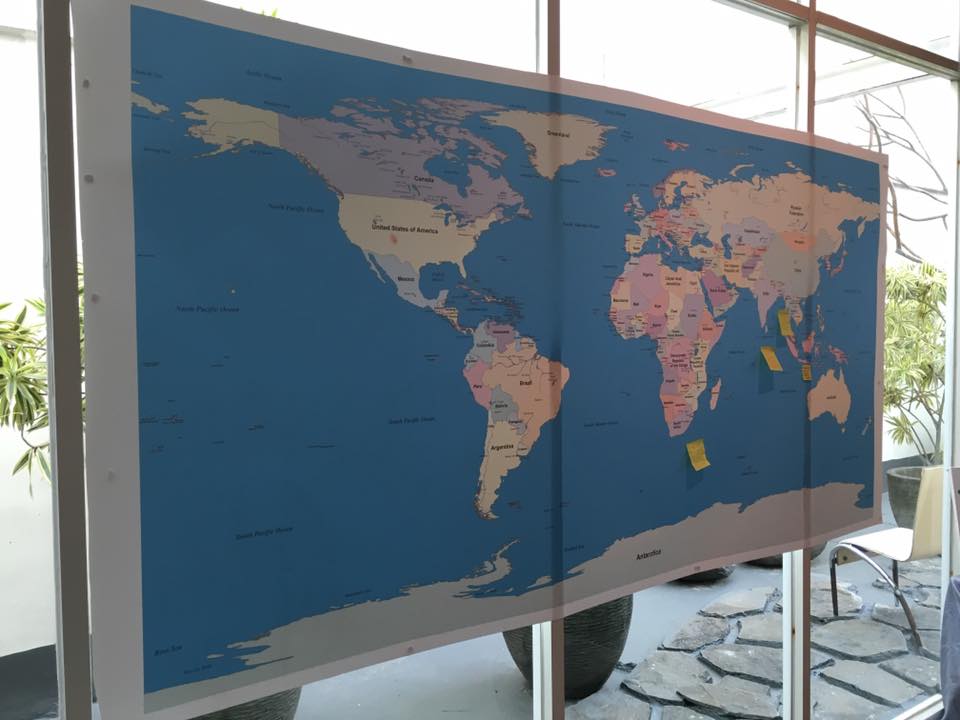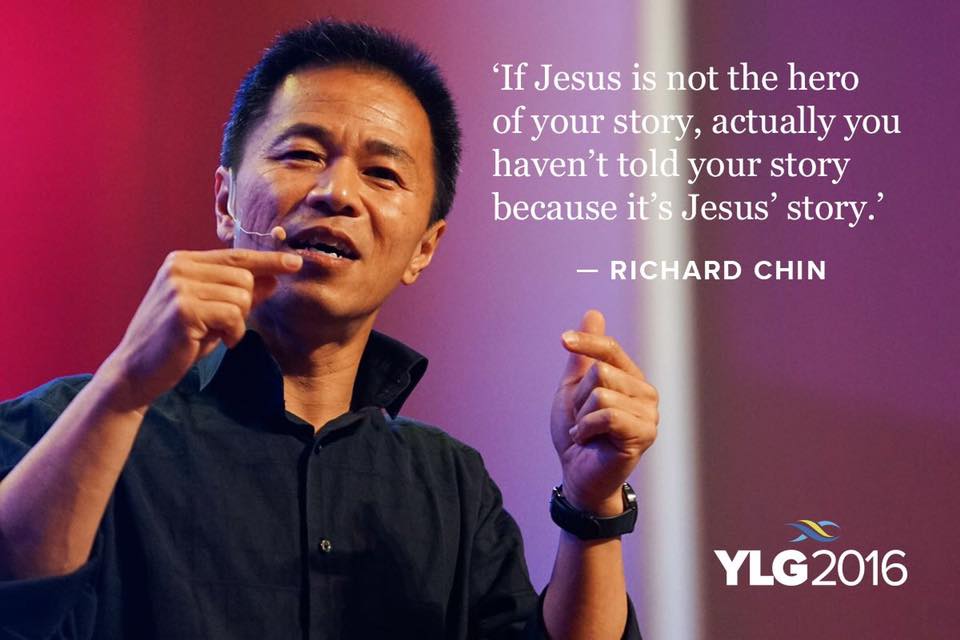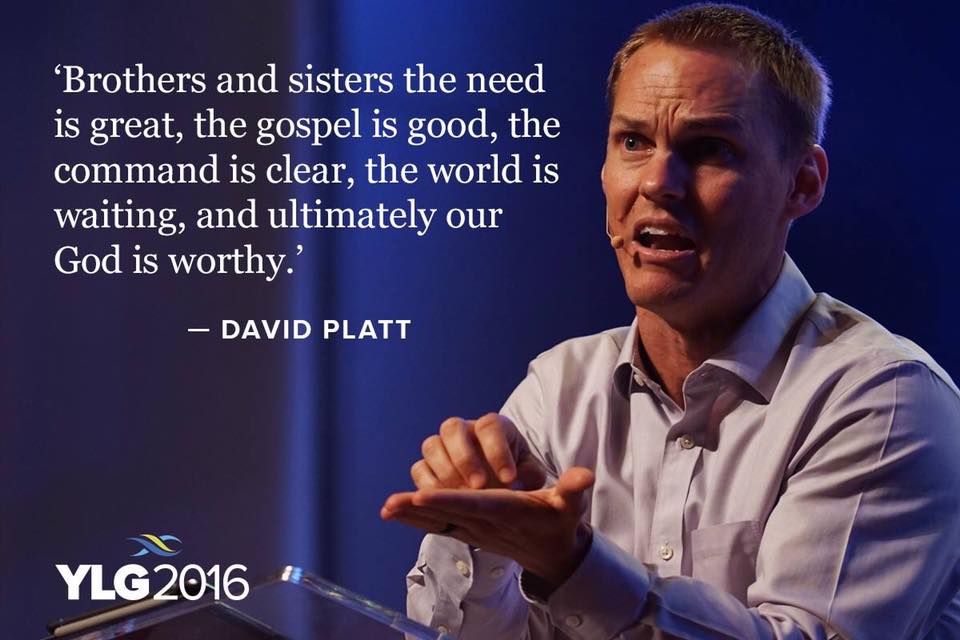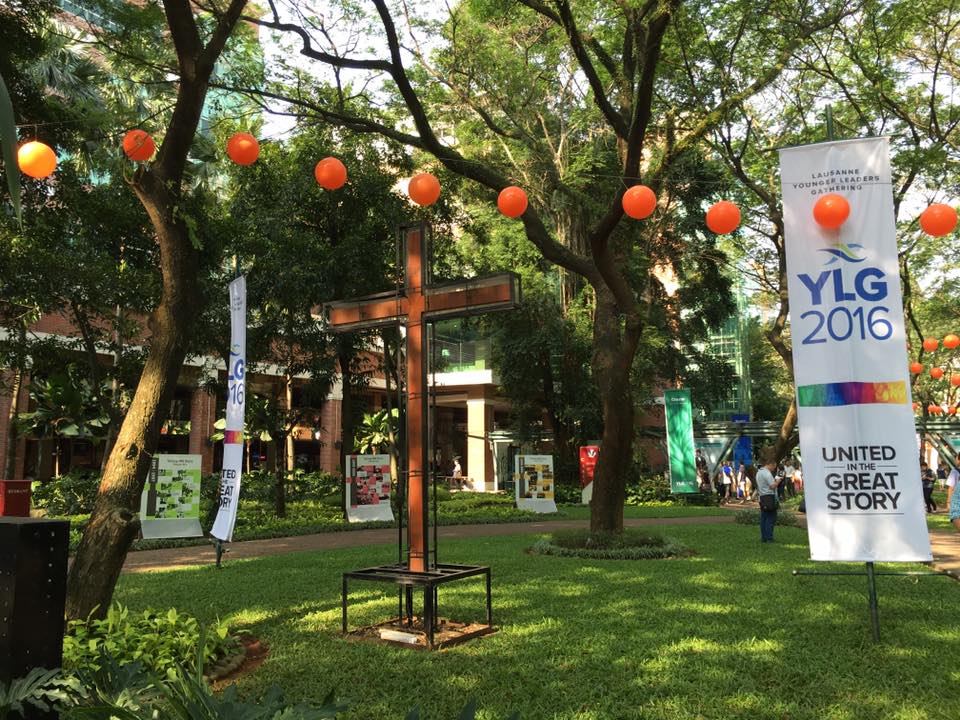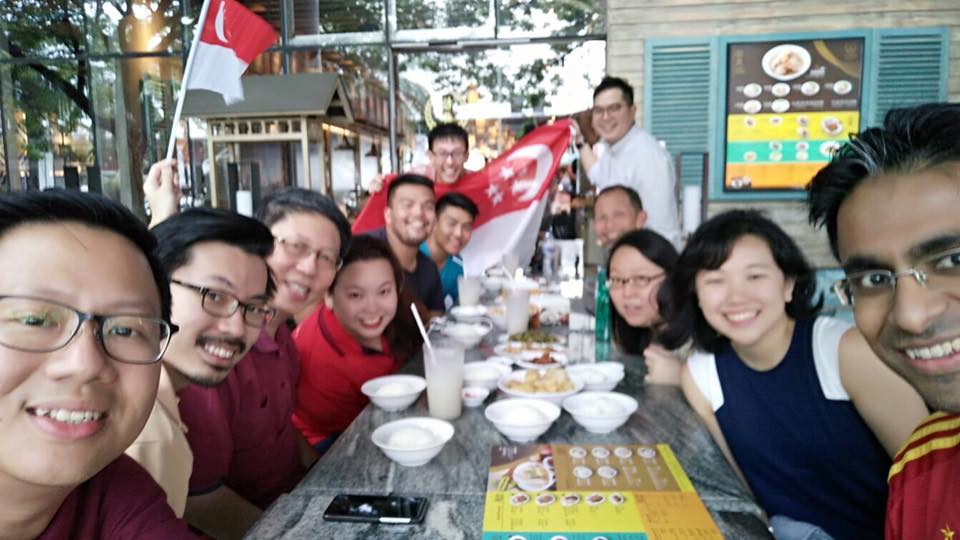“United in the Great Story!“
The past 9 days 8 nights have forever changed my life, and will probably also change the course of the world. 1,300 participants from 160 nations gathered in Indonesia for the Lausanne Movement’s Young Leaders Gathering 2016.
Christian Olympics or Christian UN?
A PRC lady who was supposed to go for the previous Lausanne world congress but was stopped by the PRC authorities along with 200 pastors described Lausanne as some sort of “Christian Olympics”. If it were, I’d probably be the lousiest player in the most low-profile sport.
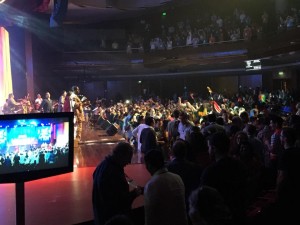
But thank God this wasn’t Christian Olympics. We aren’t competing but are partnering with one another in pursuit of a common mission. If it were a competition, many of us would leave defeated just by hearing of the amazing things some of the people there are doing. The amazing thing is it’s not about them. It’s about God doing amazing things, big and small things, through them. If it’s not a Christian Olympics, then it is more a Christian United Nations. We worshipped in English, Spanish, French, Swahili, Arabic, Korean, Mandarin, Bahasa. We had official live translation for 7 languages. Some participants also volunteered as translators. I listened to a Russian lady serving in North Korea speaking in Russian with the aid of another participant. She shared about the 450g of food rations each person gets a day, the culture of fear and telling on family members and neighbours, people going missing. She shared about 3 Christian bakeries providing 5,000 buns to children on their way to school each day. The poverty and hunger and fear there is pervasive, she told us.
The Hero in the Stories of Heroes
I heard many crazy stories throughout my time there. Some I got to hear personally, some told to me through other participants. There are just too many stories and too little time to hear them all.
There was a 30-year-old lady from Jamaica who felt called to help rebuild a city in Haiti, both physically and spiritually. A Ghanaian who left a lavish lifestyle to travel around central Africa, ministering to more than 10,000 youth. A banker who lives in Burkina Faso trying to start small business to fund the desperately poor churches. A Middle Eastern 20-something Lebanese woman who became a marketing executive to ensure the production and distribution of Arabic Christian literature. A young Kyrgystanian who runs the student ministry movement for the entirety of Central Asia. A lady who pioneered mental health care amongst the Rwandan refugees. An Indian craftsman who has a Master’s degree in fine arts and pottery who runs a social enterprise and micro-finance programme for the poor villages. Oh and he runs a community college too and is now thinking of expanding the college to a full college.
Another Indian pastor who raises funds for scholarships to see his slum church kids to get through college. Another one of them liked motorbikes so they raised funds to build a workshop for him to tinker around and which hopefully he can manage as an income source. An Indian pastor who was born an orphan and now also rescues children from forced labour and trafficking, and finds families to adopt them instead of institutionalising them in orphanages. (Honestly, the circumstances in which this Indian pastor, Alex Sam, first met me were a little embarrassing on my part. I had thought he was a stranger on the street and not a participant at YLG. He was dressed very simply and in shorts and slippers. It was late at night, and he was waiting across the road for me. He saw me, came up to me and said in this husky deep voice, “are you Ronald?” I got a little scared for a moment. I thought he was a henchman! I whimpered, “Yes?” He then explained that his sister-in-law used to be a domestic helper of one of my church members and told him that I was at YLG!)
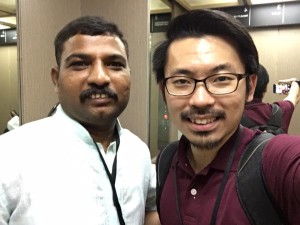
A lady who once hated God and Christians but who later became a fervent believer, called under Isaiah 42 to bring justice to the oppressed. She has risked life and limb to rescue 4,000 modern day slaves in India working with IJM, Compassion International, etc. She told us she and her team once were met with a mob armed with weapons coming at them. But God worked a miracle and parted the mob like He parted the Red Sea. They left with only minor cuts. And another incident where she was prisoned by the employers of the slaves she sought to rescue. It became a furtive high level diplomatic issue between the U.S. Government and the Indian Government and the employers eventually let them go. Her name is Pranitha Timothy. Check out a summary of her story here: http://willfjohnston.com/2012/08/10/gary-haugen-the-global-leadership-summit/.
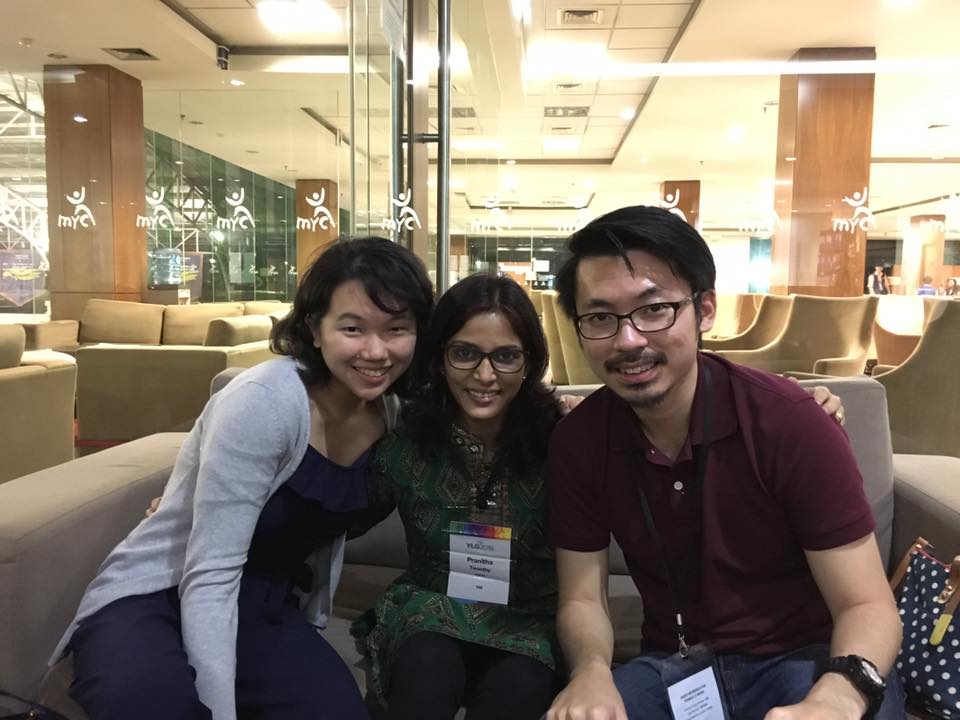
And a guy who once served with Mother Teresa in Calcutta and who also worked to rescue victims of human trafficking and support the survivors to become leaders. He shared about how for 7 years he couldn’t break in to the underground. There was once the pimps held knives at his neck. Check out Christopher Heuertz’s story here: http://chrisheuertz.com/biography/
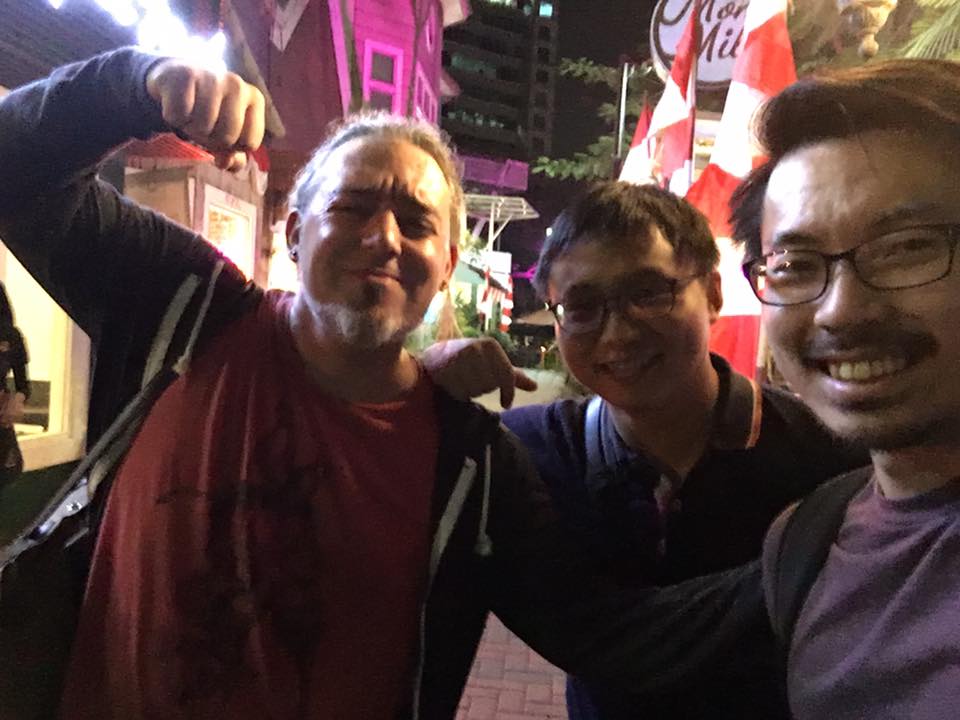
The question that kept coming up was how much are you willing to sacrifice to be faithful to the calling God has given you? Because these people. Oh these people were clear of their calling. But it’s not as though they knew from day one where they would end up. No. They always have the promises of God. But at any one time they only have the single next step lit up by the lamp unto their feet.
There were many stories of pain and hurt but which have turned into strength and joy. In my connect group was a Jewish man who was born in Moscow, whose family later moved to Germany. His parents’ relatives were murdered in WWII. Through his childhood, he was despised for his Jewish identity, and then later in Germany, for his Russian nationality. By the amazing connection of a long lost relative who then connected relatives to his family, relatives who were Christian missionaries, his family became Christians. For the longest time, they couldn’t make sense of their own identity. Christian Jew? That, according to him, was treated by his people as the lowest of lows. But they worked out their faith and identity. Now this man shepherds a Messianic Jewish community in Munich. Amazing humble guy. 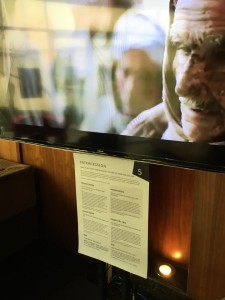
I heard stories of persecution. The father of a Laotian girl I befriended was imprisoned with a few others for no apparent reason other than that a bookmark was found on him; the bookmark had the word “repent” on it. They were imprisoned in a cell the size of a toilet cubicle. Had to share one bowl of watery soup a day.
Then there was a man who was born into a Mujahideen family in a country in Africa (not to be named). He saw a vision of Jesus three times, beckoning him to pray and believe. He did. And he was enslaved by his own family. He later met a friend who had also become a believer. Later on, a fundamentalist terrorist group captured him and forced him at gunpoint to renounce his faith on the phone to two persons. He called his wife and this man and told them he was not going to renounce his faith. He would die for the Gospel. Moments later, gunshots through the phoneline pierced through.
There’s a guy from South Sudan who had to hide in a truck to sneak through the borders to get to the conference. Some participants from Kenya and Nigeria were still missing as at day 1. Some got stuck at airports on transit because of visa issues and couldn’t afford an additional plane ticket. Some other participants pooled money and bought them tickets. It’s like the Acts church in practice.
Those are just a sample of many many other stories I heard. These are crazy stories. Stories of great faith. Stories of great hurts. But above all, these are stories of a great Saviour. A wounded saviour who alone can speak to wounded nations torn by war and violence, in the words of Ravi Zacharias who answered a man from Rwanda who lost many relatives to the genocide there. A great Shepherd who remains faithful to the end, who turns mourning into dancing, who makes ashes into beauty. He is the hero of all these stories.
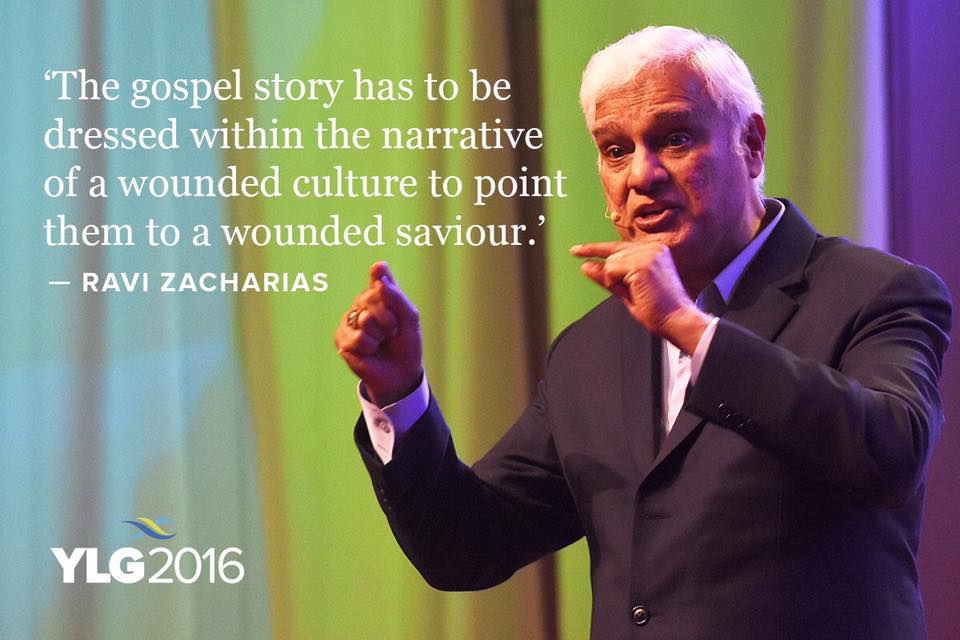
As a Bible expositor in the conference Richard Chin declared, if Jesus is not the hero of your story, you haven’t told your story yet. Because your story is Jesus’ story. Jesus Christ is the hero of all the amazing stories of suffering and redemption.
The Enormity and Urgency of the Unfinished Task
We were hit with some astounding statistics from Operation World. 81% of the world do not personally know a Christian. In 2015, 2.1 billion of the world are unevangelised. A majority of the unevangelised and poor live in rural areas. 1 in 6 of the world lives in slums. Only 1 in 10,000 Christian workers live among them. It’s estimated there are about 6600 unreached people groups still.
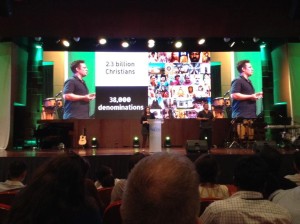
David Platt spoke one evening pleading us to hear the reasons for a consuming ambition of preaching the Gospel to unreached people groups. The first he spoke on was highly controversial and disturbing. At first, I was also wondering about its veracity. But after I re-examined the Bible and examined my own heart, I realised that I had been downplaying it and had chosen to ignore it so as to make myself feel better. This is the issue of hell. Sure there’s an ongoing debate about what exactly is hell. But we need not land on a consensus on what hell really will be. We need to only read the Bible passages to know that it is not a place we want any of our friends, our family members to be in. So why should we forsake our unfinished task to bring the only lifeline to people? People who otherwise have no access to this lifeline.
When I hear of the stories of modern slavery, poverty, refugees, and the hellish conditions many of these people are in, I wonder if we have conveniently eschewed talking about hell not only so that we need not feel bad about preaching the Gospel, but also so that we need not feel bad stepping out of comfort zone to empathise with and take action for those who experience living hell on earth. In any case, the Gospel of the Kingdom of God is their only lifeline. Where are we in relation to them?
We must embody the whole Gospel and go to the whole world. “Because the need is great, the Gospel is good, the command is clear, the world is waiting and our God is worthy”: David Platt.
Burning Wicks
There was a large undercurrent throughout the conference which few people expressly talked about. But allusions were made to it on numerous occasions. And behind the scenes, people were getting hit by it.
By it, I refer to Christian leaders and activists suffering burn out. The number of Christian leaders who shared on this issue in the leadership panel forums is uncanny. Away from the visible eye, I was told there were participants breaking down. Lives burnt out. Burnt families. Burnt marriages. All because these people were so on fire for God’s work.
An African international ministry leader shared about how he worked tirelessly for the ministry. One day his daughters brought him out for dinner and said, “Dad we appreciate all the work you are doing. But mom is hurting.”
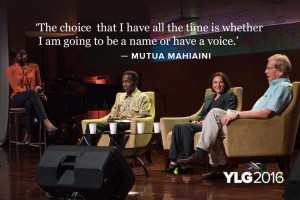
In my own connect group, a Kenyan lady who leads a missionary organisation within Kenya (there are many unreached people groups within Kenya!) with her husband shared about how she came to the conference reluctant and weary. Her husband was a workaholic and drove them hard. The ministry grew fast within a few years. They now have 22 missionaries. Her family members who once rejected her for her faith and ministry now participates in her ministry. And underneath the story of redemption and growth is weariness.
I wonder if such burn out would be less frequent or drastic if more Christians stepped up and stepped out instead of leaving the unfinished work to only a few. That is the call we must make on all our brothers and sisters in Christ. Step up and step out. It’s not the vocation of a few but the responsibility of the many.
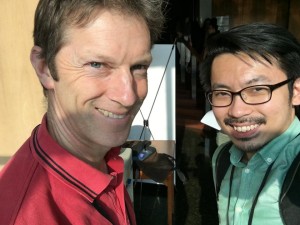
At the leadership forums, the same points on ways to address burn out and apply self-care keep coming up: (1) have a faith community of good spiritual friends, (2) pray because (among other things) “prayer saves time”, (3) solitude, (4) rest, (5) be humble and remember that “we are dust” (in the words of Vaughan Roberts). (Speaking of Vaughan Roberts, his book God’s Big Picture changed my life. I knew he was going to be a speaker at the conference but I was disappointed that the organisers didn’t allow for us to have one-on-one time with the speakers unlike the mentors. On the first day of the conference, I was lurking around the worship hall and LO AND BEHOLD, I saw Roberts in flesh. I went up to him and said, dude, you changed my life. So I got his autograph on his book on True Friendship!)
In Community For Community
Throughout my private conversations and also from various speakers, two key words keep popping up. I reviewed my pages of notes written down during the conference and highlighted 5 times these two words stood out in just the notes, let alone the unrecorded conversations.
The two words are “community” and “friendships“.
In separate conversations I had with an Indian musician-theologian based in Orlando, U.S. with interest in the arts, a Sydney-based pastor with interest in social justice, human sexuality and public engagement, a British Anglican cleric who struggles with same sex attraction but has remained faithfully celibate and has a thriving teaching ministry, a group of pastors and church leaders talking about justice in the local church, an American anti-trafficking activist, I heard “community” and “friendships” again and again.
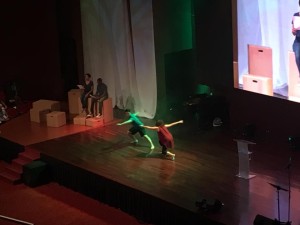
Of course it could be just my own confirmation bias. But even if it were the case, it will not necessarily lead to a resonance of thoughts on the subject. What I found was indeed resonance and echoes as though my prior thoughts had escaped me and traversed like radio waves spreading across time and space finding themselves home in distant coastlands and regurgitating themselves expressed through the distinct human voices of those who were destined that I encounter at YLG.
What I heard and have synthesised is this: the necessity of a community of spiritual friends, for the sake of building communities of unlikely friendships, and this is the life Jesus calls His followers to. The icing on the cake? I found a book in the bookstore at the venue of the conference that’s exactly on point: Charles Moore, ed., Called to Community: The Life Jesus Wants for His People. With a forward by my new favourite Christian thinker Stanley Hauerwas. What are the odds?

But it shouldn’t be surprising. We are all reading the same Book. It depends on how we read the Book. For information or transformation. By the Holy Spirit or fleshly eyes?
So I’m now convinced more than ever about this. At the heart of it is the Gospel of Jesus, the Gospel of God’s Kingdom. The Gospel that calls out people from all over into a family, a community, who loves God by loving one another just as how Jesus loves us. That is the Church. That is the just community, the righteous community. But this community is not enough. It’s not enough because there are others who are not yet home but who are supposed to be home. They’re everywhere. In our neighbourhoods, our workplaces, our public places. They’re in foreign places, in rural villages and dense urban cities. They’re at the end of the dirt road. Behind the walls of giant concrete cages. They’re especially the impoverished and the hurt, the marginalised and the oppressed, the suffering and the crying. They’re waiting to go home to a place, a family they do not yet know. A Father awaits. A community awaits.
But it starts with the community of faithful friends. A community that loves one another. But a community that only looks into itself will collapse onto itself. And a community that only looks out will stumble and struggle to get up. It’s like family. The optimal setting for children to thrive in is a marriage that is nourished with overflowing love. The world is the beneficiary of the overflowing love from the triune divine community.
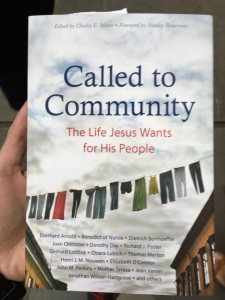
This then, for me, is what it means for the whole Church to take the whole Gospel to the whole world. It is a community of believers who love one another and who embody the Kingdom of God, the spirit of Jesus, in the overlapping parallel communities they find their way into so that the overlapping communities become transformed from the inside out into communities of faith. In community, for community.
How Small
Story after story, testimony after testimony, I realise more and more how small I am, how blessed I am, how little I can offer, and yet how big our God is. And so too it is with my little red dot, Singapore.
I gathered with a bunch of participants who were lawyers. They were from Malaysia, Ghana, Botswana, Zimbabwe, Ethiopia, Indonesia, among others. They shared about judicial corruption and bribery and the absence of rule of law. There were people in jail without trial for years for no reason at all. There were persecuted Christians and Churches. The Ghana lawyer said to me, your Lee Kuan Yew is good. You are very blessed.
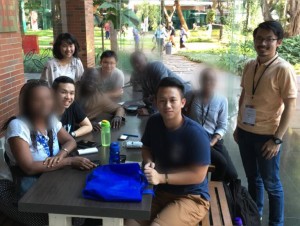
Indeed we are. So why did God bless us? So we can hoard the blessings and be happy unto ourselves?
At the same time, Singapore Christians and Churches somehow seem to be rather simple about the way they engage in overseas ministry work. A Singaporean missionary in North Thailand who was actually part of the Thai delegation shared about how local ministry partners in developing countries are taking the money that Singapore churches (and other richer countries) and sometimes without regard for optimal and effective use of the money. In worse cases, money is diverted to line pockets. When short term mission teams from the funding churches visit the local ministry, they would pay villagers to come and attend so as to create the appearance of a flourishing ministry. When the foreigners leave, all that’s left are the dry silence of orphans left to their own devices.
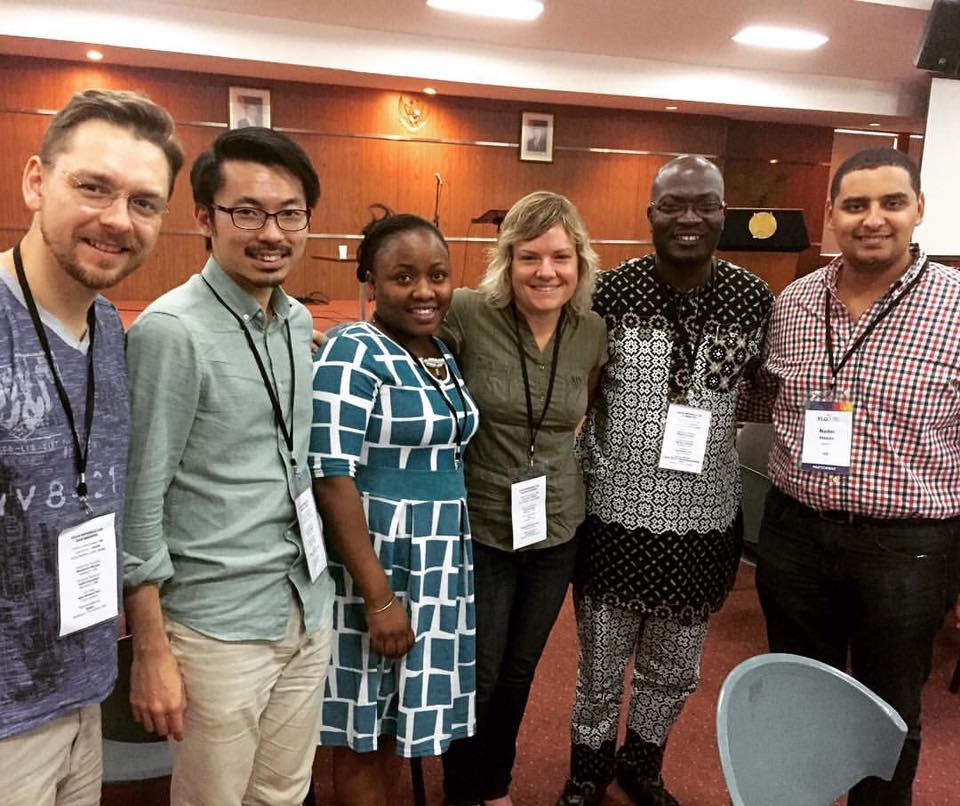
Singapore is perceived by many other countries in the global south to be rich. And yes, relative to many of them, Singapore is a richer nation. Obviously not all Singaporeans or Singapore churches are rich. But that’s quite beside the point. Singaporeans have more to offer than money. And it’s not even what we can offer. It’s how we can serve. I realise one problem with many Singapore churches’ approaches to foreign missions is that they like to take the lead, take their own initiative independently of international mission organisations and other churches.
Well, how about leading by serving? And that means not taking the lead to start initiatives but asking our partners in global and local para-church groups and networks in foreign countries how we can partner, support and serve them. Why are so many churches skeptical of para-church groups? Local churches are like medical general practitioners. They have to deal with a whole host of general issues. The specialists who have years of experience are here for the reason that they have made more mistakes and grown / evolved over time.
What is even more telling is that very few main denominations and mega churches in Singapore were represented at the Lausanne YLG conference at all. Few even have heard of it. One might say, but that’s not the point, this Lausanne thing. No it’s not. But it’s indicative of how insular many of us are. The Lausanne Movement came about from the agonising of many key evangelical leaders from all over the world over the issue of world evangelisation. John Stott and Billy Graham, are two key ones. Others included Francis Schaeffer, Os Guinness, Samuel Escobar, Jim Packer. People like Christopher Wright, Ravi Zacharias were there as young leaders. What’s the significance of the Lausanne Movement? It’s the Lausanne Covenant. It’s the recognition by evangelical Christian leaders that evangelism and social action are two wings of the same bird of the mandate for Christians to proclaim and demonstrate the Gospel. (Billy Graham didn’t agree on this. John Stott issued an ultimatum that if they wouldn’t engage with him to include this in the Lausanne distinctive, he would pull out! That’s how convicted Stott was!) It’s the recognition that evangelicals may differ in approach and even non-core beliefs but all the more need to cooperate and unite for the Gospel. The Lausanne Movement has 36 issue networks. Which evangelical movement in one breath recognises so many issues, which are the loci of challenges and opportunities in relation to the Gospel?
Circling back to Singapore, all the more because Singapore is so small and so blessed that her Church needs to learn to move within the global evangelical movement and serve the Global Church and the Church in other countries by engaging on all aspects of the issue networks and offering its contribution at the disposal of others.
The Final Prayer
What, in the light of all the above reflections, was the key takeaway for me? What is the one most important breath of prayer I must make, having inhaled all the wisdom and stories of brothers and sisters from all across the world?
Os Guinness shared that when he visited John Stott as Stott laid on his bed in his final hour, he asked Stott how he could pray for him. What would this grand Christian statesman pray for the Church, or the world, or for the country? What would be his utmost concern in the impending finality? Stott’s reply was simply,
“Os, please pray that I’ll be faithful to the end.“
Faithful to the end. There’s nothing grander, nothing fuller, nothing more urgent, than this humble plea. This too is my prayer.
Yet, Lausanne YLG is to me the clocktower to Mother Teresa which she scaled to ring the bell only to see the urgent, plentiful and sombre needs of the infirmed and afflicted on the streets of Calcutta. It is the place from which I look to God and say like Jabez, “enlarge my border!” It is the upper room on Pentecost where I witnessed something like the Spirit’s tongues of flames descend upon brothers and sisters from all nations united not in one language but one Spirit which gives understanding in spite of the multitude of languages. The place where we say, no we shall not make a name for ourselves, let’s not make this our city of security, of idolatry. Let’s magnify the name of God! Let’s march into the heavenly city with the glory of the nations!
Above all, through it all, let’s be faithful to the end.
